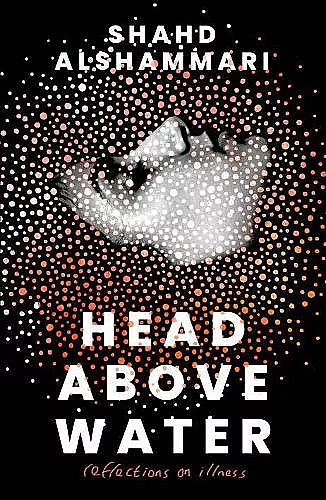Head Above Water
Reflections on Illness
Format:Hardback
Publisher:Boundless Publishing Group Ltd
Published:30th May '22
Currently unavailable, our supplier has not provided us a restock date
This hardback is available in another edition too:
- Paperback£10.99(9781911107408)

This non-fiction hardback, "Head Above Water" from Shahd Alshammari, was published 30th May 2022 by Boundless Publishing Group Ltd.
- Long-listed for The Barbellion Prize 2022 (UK)
ISBN: 9781911107392
Dimensions: unknown
Weight: 294g
208 pages